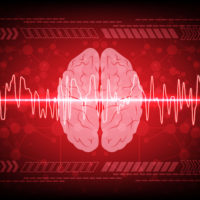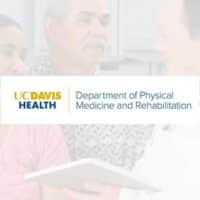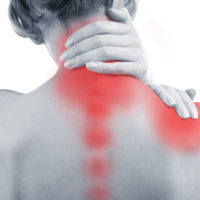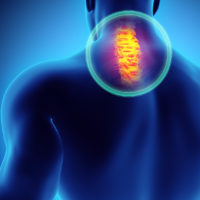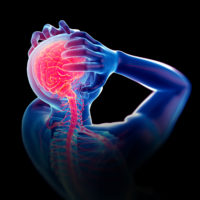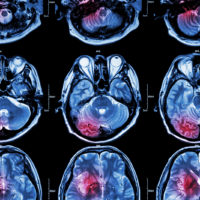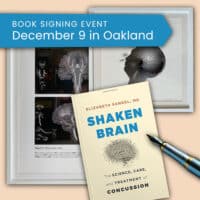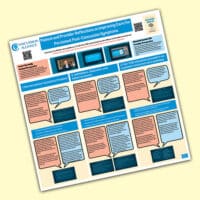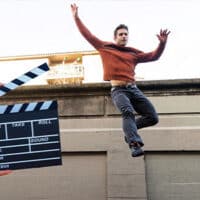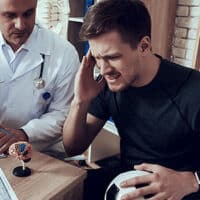Archive
Text
What Is Cognitive Rehabilitation Therapy?
Cognitive Rehabilitation Therapy (CRT) is an evidence-based approach to addressing multiple cognitive impairments caused by a traumatic brain injury. Restorative CRT strengthens cognitive abilities, and compensatory CRT provides strategies to reduce the impact of deficits.
Patient-Centered Concussion Care
Presenting to the physical medicine and rehabilitation (PM&R) residents at the UC Davis School of Medicine sparked a lively exchange about patient-centered concussion care. Learn more about the challenges and possibilities for transforming concussion care.
Three Alternative Treatment Modalities to Ease Brain Injury Associated Symptoms
Conventional treatments like medications may not help symptoms after a brain injury. Complementary or alternative treatments may help.
Check the Neck after a Brain Injury
Whiplash and cervical strain occurs when a person’s head and neck are forced back and forth, injuring soft tissues of the neck. They are common after brain injuries.
Post-Traumatic Headaches: Not Just One Type or Treatment
Headaches must be evaluated with a comprehensive history and physical examination. There are many options for treatment, but diagnosis has to be the first step.
Evaluating and Treating Headaches After Brain Injury
Headaches are extremely common after a traumatic brain injury, but there are various treatments that vary depending on the phenotype or cause.
Brain Imaging after an Injury
CT and MRI scans are the most common imaging modalities to evaluate people with traumatic brain injury, but advanced imaging methods are more promising for diagnosis and prognosis. However, interpretations of findings can vary.
Treatment and Prognosis after a Concussion
Learn about treatments for post-concussion symptoms—including medication, various rehabilitation therapies, neuropsychology, and potentially some complementary therapies—as well as factors related to longer concussion recovery times.
Meet Dr. Sandel at the Book Signing Event on December 9
Join Dr. Sandel in Oakland on Friday, December 9 from 4:30-6:30pm for a “Shaken Brain” book signing event. Presented by Kim Cole Real Estate.
Patient and Provider Perspectives on Improving Care for Post-Concussion Symptoms
This poster, created for the International Brain Injury Conference in New York in Sept 2022, offers various perspectives on how to improve concussion care. Attached are a reformatted poster presentation and related webinar links.
Concussion in Stunt Performers and other Film & Theater Workers
New research by Professor Jeffrey Russell of Ohio University provides evidence that concussion is a serious occupational health risk in stunt performers. They—and likely other film/theater workers—could benefit from concussion management, risk reduction, and education.
Updating the International Sports Guidelines for Concussion
The 6th International Consensus Conference on Concussion in Sport meets in Oct 2022 to face again the task of revising their sports concussion guidelines. The conference comes in the midst of controversies regarding Paul McCrory, the group’s former chair, and just after a long-awaited statement of causation for CTE from the NIH.
Keep up to date
Get updates on the latest in concussion, brain health, and science-related tools from Dr. Elizabeth Sandel, M.D.
By clicking SIGN UP, you agree to receive emails from Dr. Sandel and agree to our terms of use and privacy policy.
